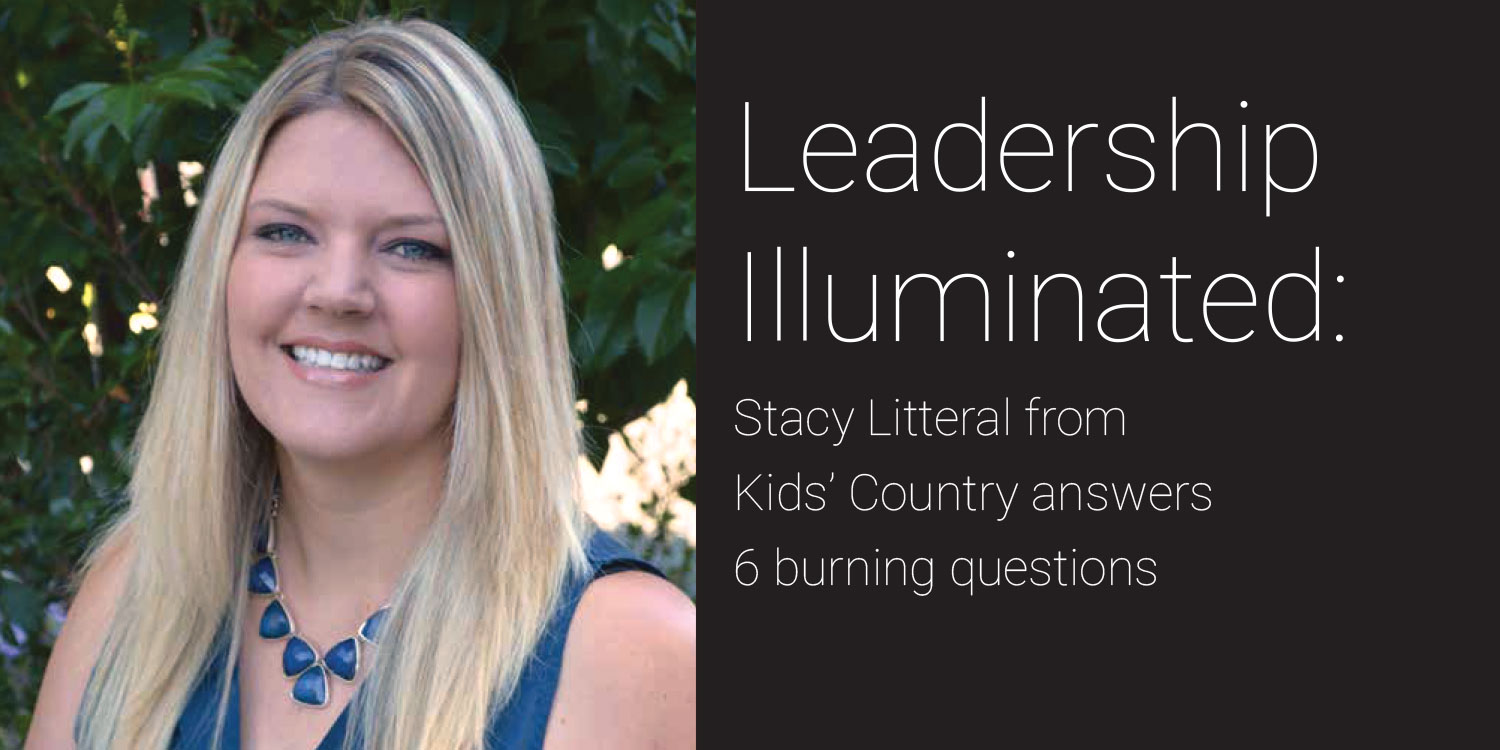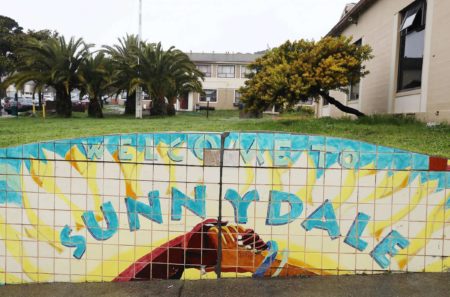Sunflower Hill at Irby Ranch is a residential community providing affordable, independent housing for people…

Leadership Illuminated: Stacy Litteral, Executive Director, Kids’ Country answers 6 burning questions
[Argus talks with clients every month about things that matter.]
Argus: What is your favorite thing about your job?
SL: My favorite thing is the opportunity I have to make an impact – for our clients and, in my role, for our staff. Sadly, for our industry, education and youth services are not viewed as a wonderful career path, especially from a financial viewpoint. Being able to show staff that there are ways to excel in this career path and move into leadership roles has been exciting. I’ve seen people who started as teacher’s assistants as a summer or after school job become site directors and made it their career.
Argus: What would you tell graduates about the work that you do?
SL: When I was in grad school, which wasn’t that long ago, I remember thinking that I wanted to find the big job that would make a lot of money and have access to lots of clients and be very visible. I went to business school and I remember all the motivational speakers and advice out there was about finding something to do that you love that won’t feel like work every day. The business school taught me, “Oh that’s mumbo-jumbo, you can’t pay the bills with passion.” But I’ve learned if you come to work and you love what you do, then that’s the best thing about work. That ties into the first question, about the impact, and that’s what I love about my work. I would go back to that cliché and tell students to do something you love. Find something that you are passionate about, that makes your heart feel good every day, allows you to make the impact you want to make, and go after that! It’s what makes coming to work worthwhile.
Argus: What are the most important decisions you make as a leader of your organization?
SL: Externally, it’s the decisions that immediately affect our clients, such as decisions around rates and the business model. For instance, we are transitioning our entire system from paper to electronic. With that change comes a lot of efficiencies, but also restrictions. Balancing those tough decisions, which may affect our parents’ pocketbooks is always difficult.
Internally, on the employee side, it’s the promotion decisions and filling the leadership roles. We have low turn-over, and if a management spot opens up, I have usually have 10 or more qualified candidates interested in moving up in their career. Making those decisions that impact peoples’ lives, those are the things that I spend the most time on.
Argus: What would you like to share about your company that not everyone knows?
SL: How professional we are. The level of professionalism we have from our board of directors down to our executive management team. The finance, marketing, facilities, programs, HR, and leadership teams are the same as those you would see in corporations. This is not common in our field and it sets us apart, making many of our programs some of the best in the country. Some think childcare is an easy business to run, that you just need site directors and teachers, but it’s so much more complicated than that if you want to do it well. This is not babysitting. We supplement the school day. Our kids get so much more out of our programs.
Argus: What is the value of having your team share a common vision of the brand?
SL: Consistency. Consistency of look, of messaging… Anything we communicate needs to be consistent and use the same terminology to describe what we do so we are clear in our message and meaning. Inconsistency makes for a confusing message about what we represent. Consistency helps us build trust and shows that we will have the same level of quality across our programs.
How do you encourage others in your organization to communicate your core values, your brand?
By modeling that behavior. For instance, today we had to decide whether or not to keep our programs open for the day because the schools were closed due to the smoke from the Camp Fire. No matter what we decided, someone would take issue. I gathered our leadership team together to discuss our options. What we kept coming back to were our values and mission of putting our children first as well as working families. We decided to keep the programs open to serve our working families and let them decide what they felt was best for their child. When you learn at 3pm that school will be closed the next day, that has an impact on parents, too. We always try to make decisions based on our values.
Argus: What challenges is your industry facing at this time?
SL: Recruiting, hiring and being able to pay a living wage. Housing cost is a challenge. We need housing opportunities in the area that make it easier for people to live near where they work and improve their quality of life and do the job they love. And it’s a complex issue: if we pay our staff what I feel they are really worth, I have to raise rates on the parents beyond what they are willing or able to pay. The housing imbalance is a greater business challenge that doesn’t just affect our industry.

Join Us!
Join our mailing list to receive strategies, practical advice, news and helpful resources delivered right to your inbox.

